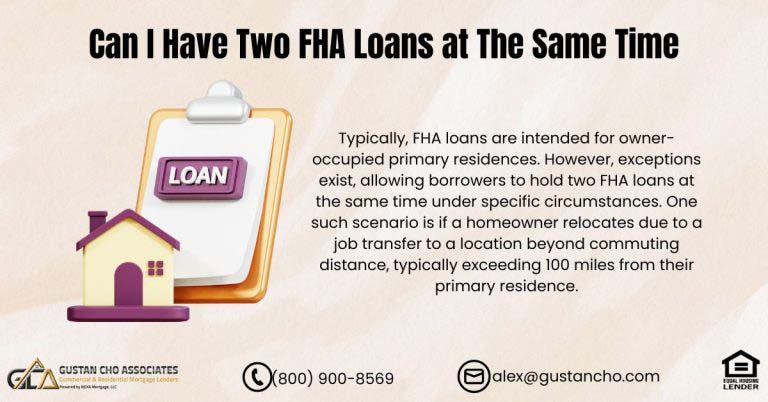This Article Is About Myths And Truths About Conventional Loans Versus FHA Mortgages
Conventional loans are not backed by any government agency like FHA, VA, USDA loans. Fannie Mae and Freddie Mac have recently loosened agency guidelines on conventional loans. First-time homebuyers can qualify for a conventional loan with a 3% down payment. A first-time homebuyer is defined as a buyer who had no ownership of a home in the past three years.
If you had owned a home in the past three years or currently own a home, the minimum down payment required is 5%. Borrowers can qualify for a conventional loan with a prior bankruptcy and/or foreclosure, deed in lieu of foreclosure, short sale. As with other loan programs, there are mandatory waiting period requirements after bankruptcy and/or a housing event. Many folks are under the impression that you can qualify for an FHA loan with outstanding collections and charged-off accounts but not conventional mortgages. This is not true.
Myths And Truths About Conventional Loans Versus FHA Mortgages On Collections And Charged-Off Accounts
Borrowers can qualify with outstanding collections and charged-off accounts on conventional loans as long as the loan is an owner-occupant primary home loan. There are restrictions on investment property conventional loans. The minimum credit score to be eligible for conventional financing is 620 FICO. There are cases when borrowers need to go with conventional loans versus FHA mortgages. For example, conventional loans allow Income-Based Repayment (IBR Payments) but FHA loans do not. In this article, we will discuss and cover Myths And Truths About Conventional Loans versus FHA mortgages.
Myths And Truths About Conventional Loans: Skyrocketing Home Prices
Skyrocketing home prices are making conventional loans more attractive than FHA loans.
This is due to the maximum conventional loan limit cap being at $548,250. Conforming loan limit caps are substantially higher than FHA loan limit caps. 2021 FHA loan limit is capped at $356,362 which is substantially lower than the 2021 conforming loan limit cap at $548,250. Both HUD and the FHFA have increased FHA and Conventional loan limits for the past five years due to skyrocketing home prices. Homebuyers are being priced out of the housing market due to rising home prices.
Jammi Cash, an Associate Contributor of <
More homebuyers are preferring conventional versus FHA loans in the past 18 months due to Fannie and Freddie relaxing its agency mortgage guidelines. It is now easier than ever to qualify for a conventional loan due to Fannie Mae and Freddie Mac easing credit and income guidelines.
Myths And Truths About Conventional Loans On Down Payment Requirements
Many people are under the impression you need a 20% down payment to qualify for a conventional loan. This is so not true. 20% down payments on home purchases are not mandatory.
The median home price in the United States averaged $341,780 in 2020. The average first-time homebuyer put an average of a 6% down payment on their home purchase. This includes first-time homebuyers qualified and approved for conventional loans. The minimum down payment required for first-time homebuyers on conventional loans is a 3% down payment. A first-time homebuyer is defined as a homebuyer who had no ownership in a home in the past three years.
Myth On Conventional Loans: FHA Allow Gift Funds But Conventional Loans Do Not
Another myth about conventional loans is homebuyers cannot get gifted funds. This is so not true. Fannie Mae and Freddie Mac allow borrowers to get gift funds from close friends and/or family members for the down payment and/or closing costs. Almost fifty percent of first-time homebuyers get gift funds from family, relatives, and/or friends This includes FHA and Conventional loan borrowers. Gift fund guidelines apply.
Lenders want sourced funds. The donor of the gift needs to sign a gift donor form provided by the lender. The gift letter will state the gift funds are solely a gift and not a loan. The donor of the gift funds also needs to show 30 days of bank statement showing the gift funds was seasoned and showing the gift funds leaving the donor’s account and being deposited to the borrower’s bank account.
Non-Occupant Borrower Guidelines On Conventional Loans
Another Myths about conventional loans is that you cannot have non-occupant co-borrowers. This is not true. Actually, non-occupant co-borrower guidelines on conventional loans are less strict than FHA loans. On FHA loans, to qualify for an FHA loan with non-occupant co-borrowers, the non-occupant co-borrower needs to be related to the main borrower by blood, marriage, and/or law. If the non-occupant co-borrower is not related to the main borrower by marriage, blood, or law, the borrower needs to put a 25% down payment versus a 3.5% down payment on a home purchase. This is not the case with conventional loans. Fannie Mae and/or Freddie Mac do not require non-occupant co-borrowers to be related to the main borrower on conventional loans. Non-occupant co-borrowers do not have to be related by law, marriage, or blood on conventional loans.
Other Myths And Truths About Conventional Loans
Another myth about conventional loans is conventional loans are for borrowers with great credit and higher credit scores. This is absolutely not the case. You do not have to pay outstanding collections and charged-off accounts to qualify for an owner-occupant primary residence conventional loan. There are times where borrowers need to go with conventional versus FHA loans. Conventional loans are the only loan program that will take income-based repayment student loans. Caps on debt to income on conventional loans can be as high as a 50% debt to income ratio.
The waiting period after the bankruptcy discharged date with a prior mortgage included in the bankruptcy is four years from the discharged date. The date of the housing event does not matter on conventional loans as long as you did not reaffirm the mortgage. However, on FHA loans, if you had a mortgage included in your bankruptcy, the three-year waiting period starts from the recorded date of the foreclosure. The bankruptcy discharged date does not matter in cases where you had a prior mortgage included in bankruptcy. The final recorded date of the foreclosure can be dragged on for many years. In cases where you have a prior mortgage included in the bankruptcy, it may benefit homebuyers to opt-in qualifying and going with conventional loans. Gustan Cho Associates has no lender overlays on government and conventional loans.










